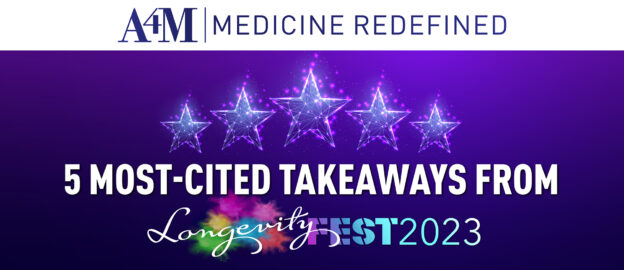Settling into the new year is the perfect time to focus on renewal, renewing our commitment to delivering excellent care and patient outcomes, and leveraging every beneficial tool at our disposal. What better way to kick off 2024 than by highlighting key learnings around longevity, healthy aging, and improving our healthspans presented at 2023’s biggest anti-aging medicine event.
Throughout the four days of LongevityFest 2023, more than 120 acclaimed experts delivered upwards of 200 forward-thinking, thought-provoking, and, beyond all, practically relevant educational sessions.
The agenda was an unforgettable learning extravaganza for longevity science and anti-aging medicine enthusiasts. From delving into the exclusive insights of Blue Zone pioneer Dan Buettner to learning about insulin-like growth factor 1 and other vital components of healthy aging, thousands of dedicated health professionals in attendance were enriched with the latest knowledge and developments in the field.



